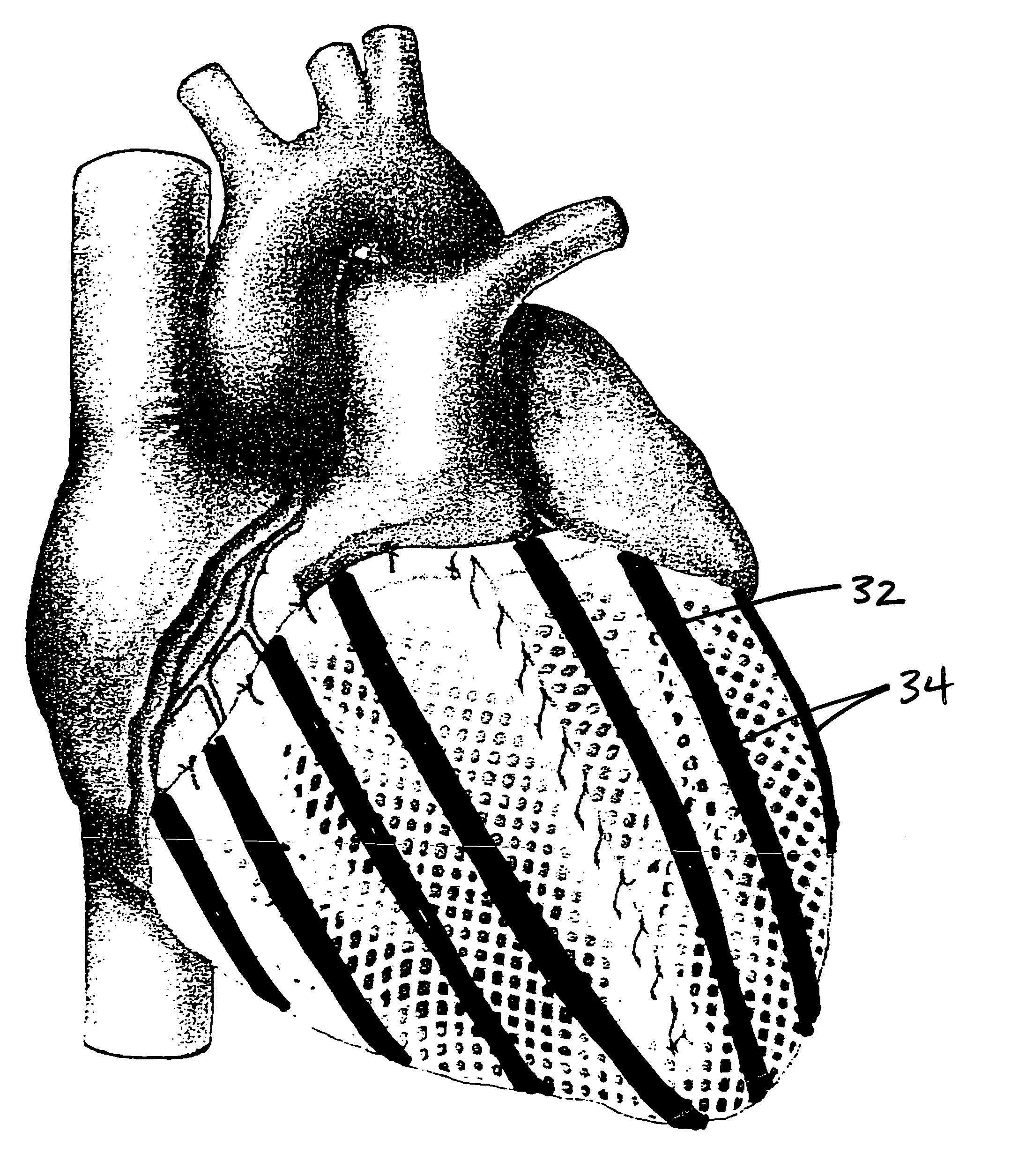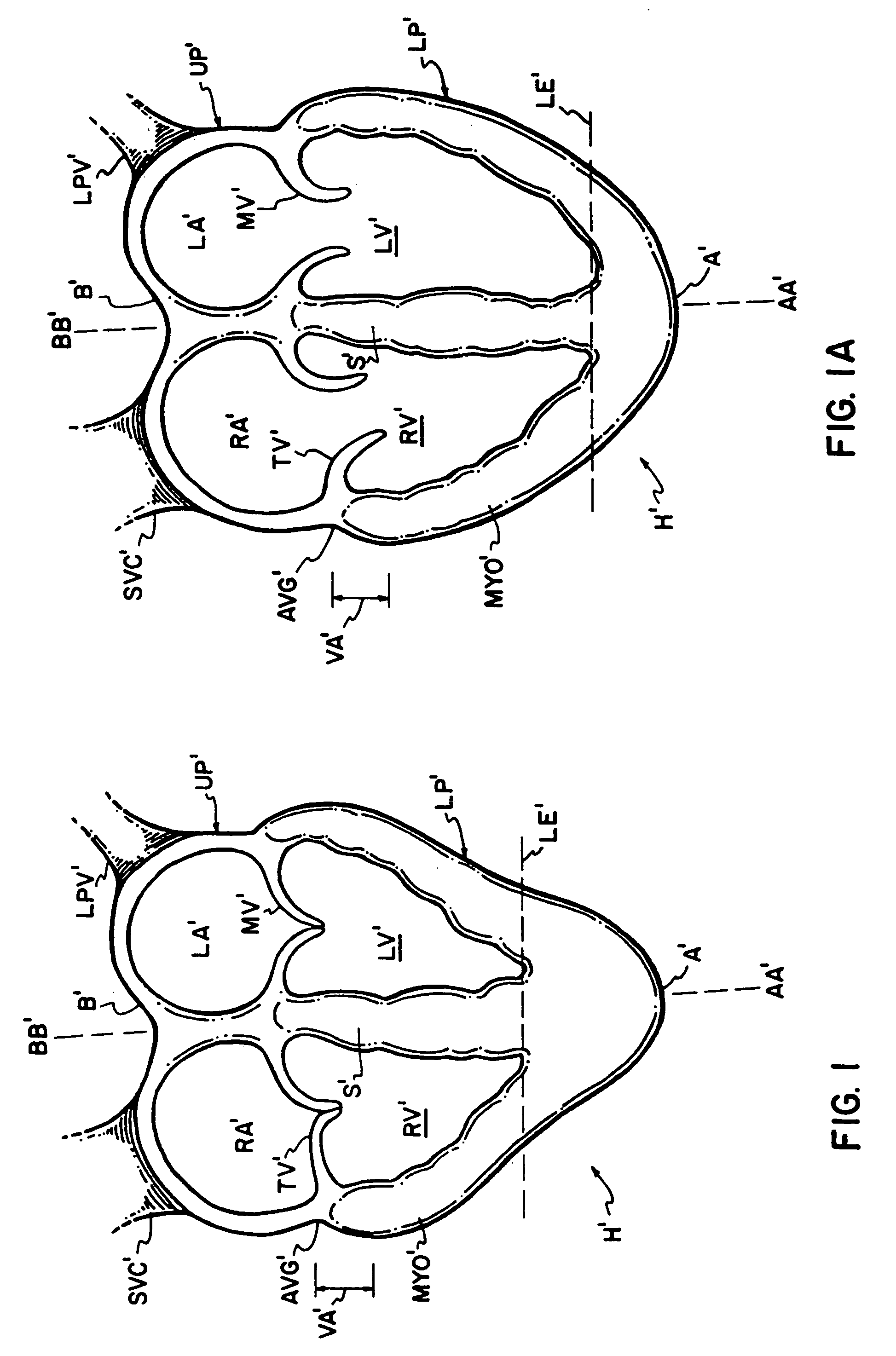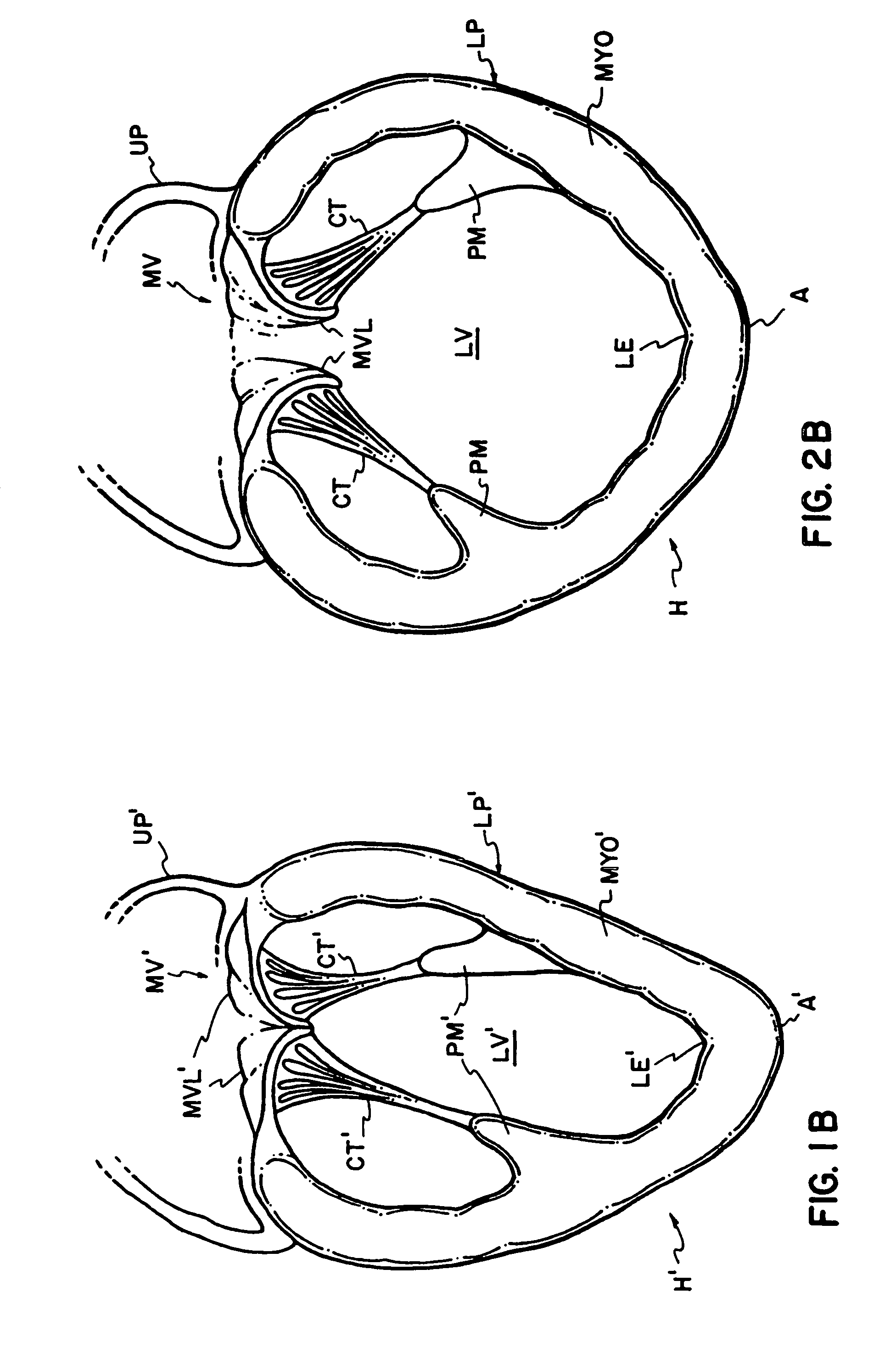Cardiac disease treatment and device
a technology for cardiac disease and treatment, applied in the field of cardiac disease treatment devices and devices, can solve the problems of progressive onset of congestive heart failure, irreversible injury of the myocardium, and progressive replacement of fibrous scar tissue in the myocardium, and achieve the effect of substantial unimpeded heart contraction
- Summary
- Abstract
- Description
- Claims
- Application Information
AI Technical Summary
Benefits of technology
Problems solved by technology
Method used
Image
Examples
Embodiment Construction
[0031]The present invention provides devices and methods for treatment of cardiac conditions such as cardiomyopathy, valvular insufficiency, arrhythmias, and other cardiac complications. Generally, the invention is directed to a jacket that is secured to the heart and constrains expansion of the heart during diastole to a predetermined limit, and a delivery source for the delivery of a therapeutic agent to the surface of the heart.
[0032]The present invention provides advantages over known methods of treatment for cardiac disorders. Many known methods of drug treatment involve delivering the drugs to the site of action through the bloodstream. The amount of time required for these drugs to have the desired effect, and how long their effects last often depend upon several factors, including how quickly the drugs get into the bloodstream, how much of them gets into the bloodstream, how quickly they leave the bloodstream, how efficiently they are broken down (metabolized) by the liver, ...
PUM
 Login to View More
Login to View More Abstract
Description
Claims
Application Information
 Login to View More
Login to View More - R&D
- Intellectual Property
- Life Sciences
- Materials
- Tech Scout
- Unparalleled Data Quality
- Higher Quality Content
- 60% Fewer Hallucinations
Browse by: Latest US Patents, China's latest patents, Technical Efficacy Thesaurus, Application Domain, Technology Topic, Popular Technical Reports.
© 2025 PatSnap. All rights reserved.Legal|Privacy policy|Modern Slavery Act Transparency Statement|Sitemap|About US| Contact US: help@patsnap.com



